Works

Resurrection
Leo Tolstoy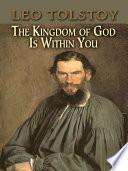
The Kingdom of God Is Within You
Leo TolstoyWhat Men Live By
Leo TolstoyFamily Happiness
Leo Tolstoy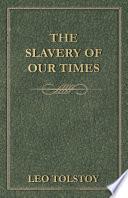
The Slavery of Our Times
Leo TolstoyThe Death of Ivan Ilyich
Leo Tolstoy
The Kreutzer Sonata
Leo TolstoyPatriotism and Government
Leo Tolstoy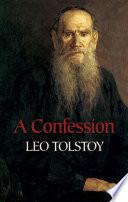
A Confession
Leo Tolstoy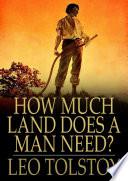
How Much Land Does a Man Need?
Leo Tolstoy
What Is Art?
Leo Tolstoy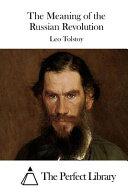
The Meaning of the Russian Revolution
Leo TolstoyWhat is my faith
Leo TolstoyThe Devil
Leo TolstoyFamous Leo Tolstoy Quotes
“There is no greatness where there is not simplicity, goodness, and truth.”
Source: War and Peace
“Nothing is so necessary for a young man as the company of intelligent women.”
Source: War and Peace
Leo Tolstoy Quotes about life
Writings on Civil Disobedience and Nonviolence (1886)
What is Art? (1897)
Context: No longer able to believe in the Church religion, whose falsehood they had detected, and incapable of accepting true Christian teaching, which denounced their whole manner of life, these rich and powerful people, stranded without any religious conception of life, involuntarily returned to that pagan view of things which places life's meaning in personal enjoyment. And then among the upper classes what is called the "Renaissance of science and art" took place, which was really not only a denial of every religion, but also an assertion that religion was unnecessary.
Leo Tolstoy Quotes about people
Leo Tolstoy: Trending quotes
“God is the infinite ALL. Man is only a finite manifestation of Him.”
Entry in Tolstoy's Diary http://www.linguadex.com/tolstoy/chapter1.htm (1 November 1910)
Context: God is the infinite ALL. Man is only a finite manifestation of Him.
Or better yet:
God is that infinite All of which man knows himself to be a finite part.
God alone exists truly. Man manifests Him in time, space and matter. The more God's manifestation in man (life) unites with the manifestations (lives) of other beings, the more man exists. This union with the lives of other beings is accomplished through love.
God is not love, but the more there is of love, the more man manifests God, and the more he truly exists...
We acknowledge God only when we are conscious of His manifestation in us. All conclusions and guidelines based on this consciousness should fully satisfy both our desire to know God as such as well as our desire to live a life based on this recognition.
Leo Tolstoy Quotes
Source: What Men Live By (1881), Ch. XI
Context: Then I remembered the first lesson God had set me: "Learn what dwells in man." And I understood that in man dwells Love! I was glad that God had already begun to show me what He had promised, and I smiled for the first time.
Thoughts of Prince Andrew Bk XII, Ch. 16
War and Peace (1865–1867; 1869)
Source: Christians and the Law-Courts
Source: Resurrection (1899), Ch. 13
As quoted in Tolstoy (1988) by A. N. Wilson, p. 146
Variant translation: The sole meaning of life is to serve humanity by contributing to the establishment of the kingdom of God, which can only be done by the recognition and profession of the truth by every man.
Source: The Kingdom of God is Within You (1894), Ch. 12
“All happy families resemble one another, each unhappy family is unhappy in its own way.”
Все счастливые семьи похожи друг на друга, каждая несчастливая семья несчастлива по-своему.
Pt. I, ch. 1
Variant translations: Happy families are all alike; every unhappy family is unhappy in its own way.
All happy families resemble one another; every unhappy family is unhappy in its own way.
Variant: Happy families are all alike; every unhappy family is unhappy in its own way.
Source: Anna Karenina (1875–1877; 1878)
“If you look for perfection, you'll never be content.”
Source: Anna Karenina
“It is amazing how complete is the delusion that beauty is goodness.”
Variant: What a strange illusion it is to suppose that beauty is goodness.
Source: The Kreutzer Sonata
“Respect was invented to cover the empty place where love should be.”
(voice of Anna) C. Garnett, trans. (New York: 2003), Part 7, Chapter 24 p. 685
Source: Anna Karenina (1875–1877; 1878)
“If you want to be happy, be.”
As quoted in Wisdom for the Soul : Five Millennia of Prescriptions for Spiritual Healing (2006) by Larry Chang, p. 352; this statement appears in late 20th century inspirational books, but with no known citation to original material by Tolstoy.
Disputed
“Is it really possible to tell someone else what one feels?”
Source: Anna Karenina
“Rummaging in our souls, we often dig up something that ought to have lain there unnoticed.”
Source: Anna Karenina
“Be bad, but at least don't be a liar, a deceiver!”
Source: Anna Karenina
“Wrong does not cease to be wrong because the majority share in it.”
Source: A Confession
“If everyone fought for their own convictions there would be no war.”
Source: War and Peace
Variant: When you love someone, you love the person as they are, and not as you'd like them to be.
Source: Anna Karenina
“The strongest of all warriors are these two — Time and Patience.”
Bk. X, ch. 16
Source: War and Peace (1865–1867; 1869)
“it's much better to do good in a way that no one knows anything about it.”
Source: Anna Karenina
“All that may be so and mankind is ready to agree with it, but it is not what was asked.”
Vol 2, pt 5, p 236 — Selected Works, Moscow, 1869
War and Peace (1865–1867; 1869)
Context: The peculiar and amusing nature of those answers stems from the fact that modern history is like a deaf person who is in the habit of answering questions that no one has put to them.
If the purpose of history be to give a description of the movement of humanity and of the peoples, the first question — in the absence of a reply to which all the rest will be incomprehensible — is: what is the power that moves peoples? To this, modern history laboriously replies either that Napoleon was a great genius, or that Louis XIV was very proud, or that certain writers wrote certain books.
All that may be so and mankind is ready to agree with it, but it is not what was asked.
What is Art? (1897)
Context: Humanity unceasingly strives forward from a lower, more partial and obscure understanding of life to one more general and more lucid. And in this, as in every movement, there are leaders — those who have understood the meaning of life more clearly than others — and of those advanced men there is always one who has in his words and life, manifested this meaning more clearly, accessibly, and strongly than others. This man's expression … with those superstitions, traditions, and ceremonies which usually form around the memory of such a man, is what is called a religion. Religions are the exponents of the highest comprehension of life … within a given age in a given society … a basis for evaluating human sentiments. If feelings bring people nearer to the religion's ideal … they are good, if these estrange them from it, and oppose it, they are bad.
Source: A Letter to a Hindu (1908), III
Context: The recognition that love represents the highest morality was nowhere denied or contradicted, but this truth was so interwoven everywhere with all kinds of falsehoods which distorted it, that finally nothing of it remained but words. It was taught that this highest morality was only applicable to private life — for home use, as it were — but that in public life all forms of violence — such as imprisonment, executions, and wars — might be used for the protection of the majority against a minority of evildoers, though such means were diametrically opposed to any vestige of love.
“There is only one significance, you are a worker.”
Last Diaries (1979) edited by Leon Stilman, p. 77
Context: How good is it to remember one's insignificance: that of a man among billions of men, of an animal amid billions of animals; and one's abode, the earth, a little grain of sand in comparison with Sirius and others, and one's life span in comparison with billions on billions of ages. There is only one significance, you are a worker. The assignment is inscribed in your reason and heart and expressed clearly and comprehensibly by the best among the beings similar to you. The reward for doing the assignment is immediately within you. But what the significance of the assignment is or of its completion, that you are not given to know, nor do you need to know it. It is good enough as it is. What else could you desire?
Christianity and Patriotism (1895), as translated in The Novels and Other Works of Lyof N. Tolstoï, Vol. 20, p. 44
Context: In all history there is no war which was not hatched by the governments, the governments alone, independent of the interests of the people, to whom war is always pernicious even when successful.
The government assures the people that they are in danger from the invasion of another nation, or from foes in their midst, and that the only way to escape this danger is by the slavish obedience of the people to their government. This fact is seen most prominently during revolutions and dictatorships, but it exists always and everywhere that the power of the government exists. Every government explains its existence, and justifies its deeds of violence, by the argument that if it did not exist the condition of things would be very much worse. After assuring the people of its danger the government subordinates it to control, and when in this condition compels it to attack some other nation. And thus the assurance of the government is corroborated in the eyes of the people, as to the danger of attack from other nations.
Bk. IX, ch. 1
War and Peace (1865–1867; 1869)
Context: In historical events great men — so-called — are but labels serving to give a name to the event, and like labels they have the least possible connection with the event itself. Every action of theirs, that seems to them an act of their own free will, is in an historical sense not free at all, but in bondage to the whole course of previous history, and predestined from all eternity.
“But just what this good patriotism is, no one explains.”
Patriotism, or Peace? http://en.wikisource.org/wiki/Patriotism,_or_Peace%3F (1896), translated by Nathan Haskell Dole
Variant:
I have already several times expressed the thought that in our day the feeling of patriotism is an unnatural, irrational, and harmful feeling, and a cause of a great part of the ills from which mankind is suffering, and that, consequently, this feeling – should not be cultivated, as is now being done, but should, on the contrary, be suppressed and eradicated by all means available to rational men. Yet, strange to say – though it is undeniable that the universal armaments and destructive wars which are ruining the peoples result from that one feeling – all my arguments showing the backwardness, anachronism, and harmfulness of patriotism have been met, and are still met, either by silence, by intentional misinterpretation, or by a strange unvarying reply to the effect that only bad patriotism (Jingoism or Chauvinism) is evil, but that real good patriotism is a very elevated moral feeling, to condemn which is not only irrational but wicked.
What this real, good patriotism consists in, we are never told; or, if anything is said about it, instead of explanation we get declamatory, inflated phrases, or, finally, some other conception is substituted for patriotism – something which has nothing in common with the patriotism we all know, and from the results of which we all suffer so severely.
Patriotism and Government http://en.wikisource.org/wiki/Patriotism_and_Government (1900)
Context: Tell people that war is an evil, and they will laugh; for who does not know it? Tell them that patriotism is an evil, and most of them will agree, but with a reservation. "Yes," they will say, "wrong patriotism is an evil; but there is another kind, the kind we hold." But just what this good patriotism is, no one explains.

